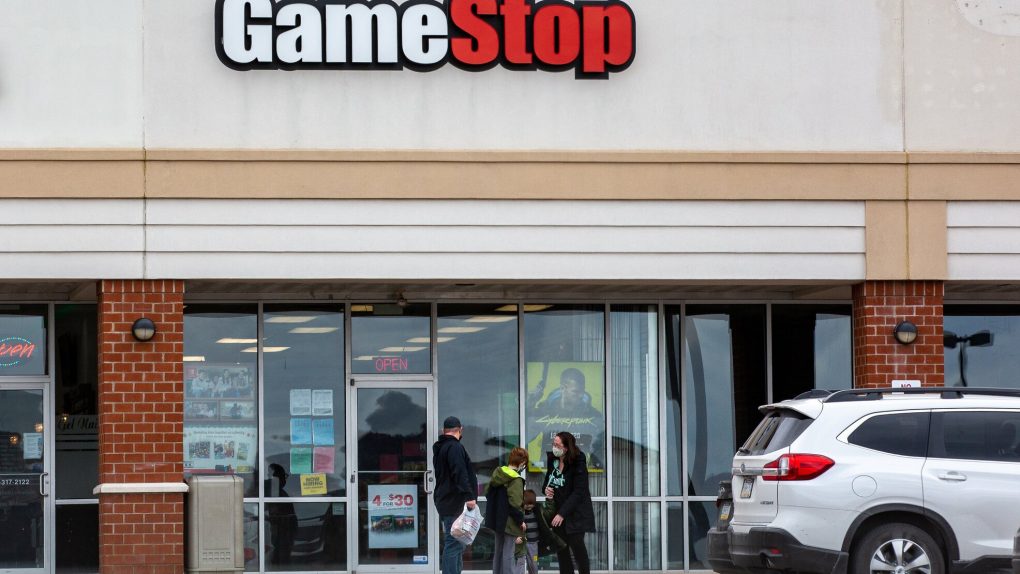- The GameStop stock price is still at a record high following an army of organized Redditors deciding to take advantage of short-sell activity around the company’s stock to drive up the price and beat Wall Street at its own game.
- Because of all this, GameStop’s market value exploded from $2 billion to more than $24 billion in just a few days. Since December, the stock price is up more than 1,700%.
- White House press secretary Jen Psaki said President Biden’s economic team is monitoring the situation.
If you believe CNN’s analysis of the mania surrounding the video game retail chain GameStop over the past few days, there’s a pretty simple explanation for what’s going. It’s that … President Trump is terrible!
Seriously, that’s the gist you’re left with after reading CNN editor-at-large Chris Cillizza’s take on one of the biggest stories to dominate the internet this week. The story being how a group of amateur investors used Reddit to coordinate a stock buying binge in order to send the GameStop stock price surging higher. Their aim was to hijack the dominance enjoyed by professional Wall Street investors, who look down on amateur traders and investors as hopelessly naive rookies. In classic little-guy-versus-the-establishment fashion, however, these amateur investors took advantage of all the supposed professionals currently shorting GameStop, who are betting that the company’s stock price will go down. Which, in a normal world, is what you’d expect to see happen. Retail is a terrible business to be in right now, and gamers are doing more online — which means they’re visiting physical stores a lot less. Except, the short sellers’ bet that GameStop’s share price will fall isn’t actually working out so well, because the Reddit amateurs bought up a bunch of GameStop shares. That sent the stock price surging, which required the pros to buy shares to cover their own loss-making short position, which sent the retail chain’s share price surging even higher.
So where does Trump come into the picture? In Cillizza’s thinking, via the ordinary folk-vs-the elites dynamic of this story.
“At the core of Donald Trump’s angry populist appeal was — and is — this sentiment,” he explains in his piece for CNN, titled “How Trumpism explains the GameStop stock surge.” Continues Cillizza, who says Trump’s appeal to a certain kind of person is because of the fact that: “The elites think they know better than you. They think they can tell you how to live and what to believe. But guess what? We the people are smarter than the elites!”
So what does that have to do with the GameStop madness, which has gotten so nuts that reporters have gone as far as asking Federal Reserve chairman Jerome Powell as well as White House press secretary Jen Psaki for comment about it? It’s this, apparently —
Trumpism wasn’t simply characterized by an understanding of the little guy-vs-the elites mentality. It also required people to take action, vis a vis giving a middle finger to the establishment by voting for Trump (again, this is a reflection of CNN’s argument, not my own). And to do so simply for its own sake. In 2016, it was a vote for Trump. But today, this week, kicking sand in the establishment’s eyes apparently means using a stock trading mechanism to drive up the share price of a particular company, in a way that’s totally de-coupled from that company’s underlying business fundamentals. To show professional investors that if enough people band together, a roving band of pirates, as it were, can essentially wrest control of Wall Street away from the moneyed interests that command it.
Accordingly, GameStop’s market value exploded from $2 billion to more than $24 billion in the span of just a few days. Since December, the stock price is up more than 1,700%. Those facts, of course, aren’t even remotely connected to the underlying fundamentals of the company’s business, to bring it back to the argument that the GameStop story is a proxy for Trumpism — in the same way that Trump’s appeal to his base had nothing whatsoever to do with the fact of whether he was qualified to be the leader of the free world.
For another take on what’s going on here, the following is a Reddit post from someone who took footage from HBO’s Chernobyl — specifically, from the trial scene at the end, where the disaster surrounding the nuclear plant meltdown is explained step by step — and paired it with a description of the GameStop brouhaha:
GME Squeeze and the Demise of Melvin Capital from wallstreetbets
Benn Patte, a 16-year-old high school student in Wisconsin, told The New York Times he made a quick $750 off of all this insanity around GameStop’s stock price. “It’s a good opportunity to make money and stick it to the hedge funds,” he said. “By buying GameStop, it’s kind of like beating them at their own game.”
Bottom line: To me, what all this underscores — whether we’re talking about Trump or GameStop or almost anything else — is that justice is a much more elusive mechanic of the world than we’d like to believe.
Right before Clint Eastwood’s character in Unforgiven kills “Little Bill,” played by Gene Hackman, Hackman moans about how he doesn’t deserve to die like this. Eastwood snarls back at him: “Deserve’s got nothing to do with it.” And if you ask me, that one line probably explains most of the big stories of the last four years better than almost anything else any of us could come up with.







